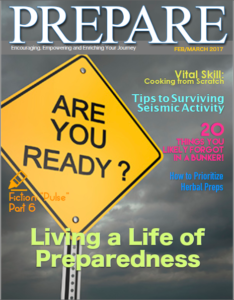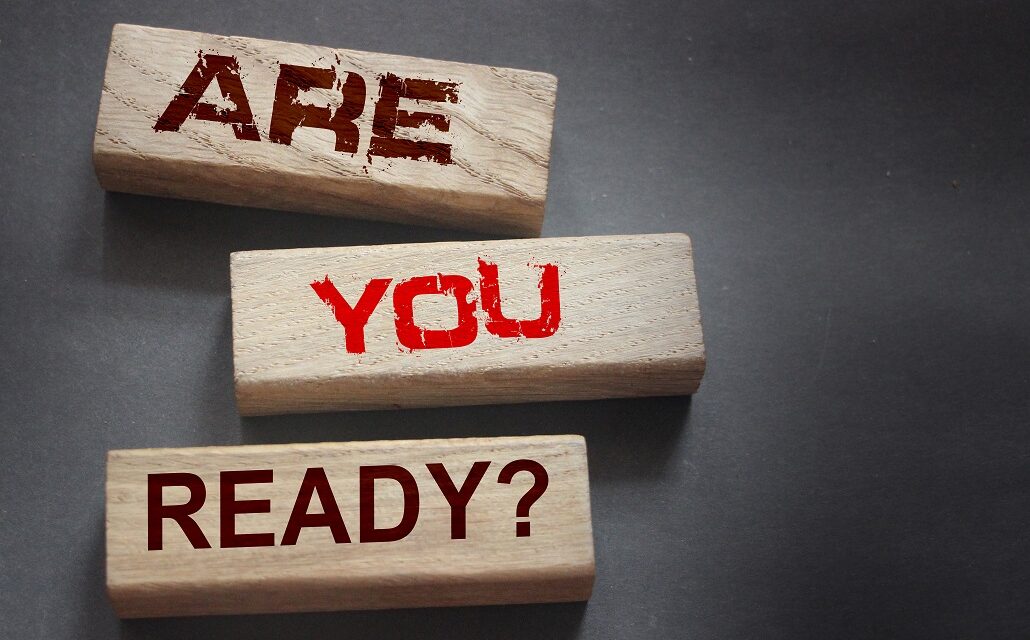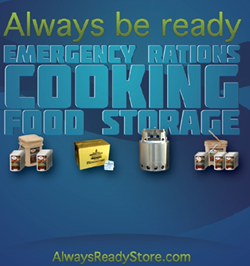The world can be unpredictable. Natural disasters, financial crises, health emergencies – these are all realities we might face. But how prepared are we to handle such situations? This is where the concept of a ‘preparedness mindset’ comes into play.
Having a preparedness mindset means being ready for the unexpected. It’s about being proactive rather than reactive, planning ahead, and having the mental fortitude to face any challenge head-on.
We’ll delve into the intricacies of this mindset, exploring its importance and how it can be cultivated. From personal preparedness to community readiness, we will uncover the various facets of this essential life skill.
So, whether you’re a survivalist, a planner, or simply someone looking to enhance your resilience, you are in the right place. Let’s embark on this journey of preparedness together, and uncover the power of a mindset ready for anything.
What Is A Preparedness Mindset?
A preparedness mindset is a state of mental readiness, a proactive approach that emphasizes the importance of being equipped for potential challenges or emergencies. This mindset can be applied in various aspects of life, including personal safety, financial stability, and even in managing business risks.
Key elements of a preparedness mindset include:
1. Anticipation: This involves identifying potential risks and threats in advance. It’s about foreseeing possible scenarios and planning accordingly.
2. Planning: A person with a preparedness mindset doesn’t just anticipate risks; they devise strategies and contingency plans to cope with them. This could involve creating an emergency fund, establishing an evacuation plan, or developing a business continuity strategy.
3. Training: Preparedness is not just about theoretical knowledge; it’s about practical skills. Whether it’s first aid training, financial literacy, or crisis management skills, a preparedness mindset encourages continuous learning and skill development.
4. Resource Management: Effective resource management is a crucial part of preparedness. This involves knowing how to allocate and utilize resources wisely, ensuring they’re available when needed.
5. Resilience: A preparedness mindset fosters resilience, the ability to bounce back from adversity. It’s about developing mental toughness and an optimistic outlook, even in the face of challenges.
A preparedness mindset is not about living in fear or constant worry. Instead, it’s about empowering oneself through knowledge, planning, and action. It’s about taking control of one’s life and future, rather than leaving things to chance. Embracing a preparedness mindset can lead to a more secure, confident, and resilient life.
How To Develop A Preparedness Mindset?
 Developing a preparedness mindset is about cultivating an attitude of readiness for any situation. This mindset is rooted in the understanding that unexpected events can occur at any time, and it is essential to be prepared.
Developing a preparedness mindset is about cultivating an attitude of readiness for any situation. This mindset is rooted in the understanding that unexpected events can occur at any time, and it is essential to be prepared.
Firstly, practicing situational awareness is a key step. This involves constantly observing your surroundings and identifying potential risks or hazards. By doing so, you can anticipate possible outcomes and plan accordingly.
Secondly, acquiring knowledge and skills relevant to survival and emergency situations is crucial. This could range from learning first aid procedures to understanding how to find food and water in the wilderness.
Thirdly, it’s essential to maintain a positive mental attitude. Challenges are inevitable, but with a positive mindset, you can overcome obstacles and adapt to changing circumstances.
Lastly, regular practice is crucial. This involves putting your knowledge and skills to the test in real-life scenarios to ensure you are ready to handle any situation.
- Practice situational awareness
- Acquire knowledge and skills
- Maintain a positive mental attitude
- Regular practice
Through these steps, you can effectively cultivate a preparedness mindset, equipping yourself to face any unexpected event with confidence and resilience.
Why Is Preparedness Mindset Important?
A preparedness mindset is an invaluable asset in navigating life’s unpredictable challenges. This mindset, often associated with emergency response or survival situations, is equally applicable in everyday scenarios. It allows individuals to anticipate potential obstacles and strategize solutions in advance, thereby reducing stress and enhancing decision-making capabilities.
Having a preparedness mindset cultivates resilience, a quality that enables individuals to bounce back from setbacks and adapt to change. This resilience is not just about surviving, but thriving amidst adversity. It promotes a proactive approach, encouraging individuals to take control of their circumstances rather than being passive victims of fate.
Furthermore, a preparedness mindset fosters personal growth. It pushes individuals to step out of their comfort zones, learn new skills, and adapt to new situations. This continuous learning and adaptability is crucial in today’s rapidly changing world.
In terms of professional settings, a preparedness mindset can significantly enhance productivity and efficiency. It can help in identifying potential risks and devising contingency plans, thereby minimizing downtime and maximizing output.
In essence, a preparedness mindset is not just about preparing for disasters, but about equipping oneself with the skills and mindset to handle any situation, big or small, with confidence and composure.
What Are The Elements Of A Preparedness Mindset?
A preparedness mindset is not just about having a plan; it’s about building resilience and being able to adapt to changing circumstances. It involves developing a proactive attitude and a willingness to take responsibility for one’s own safety and wellbeing.
The first element of a preparedness mindset is awareness. This involves understanding the risks you face in your daily life and being conscious of your environment.
The second element is knowledge. Gathering information about potential threats and learning how to mitigate them is crucial. This could involve formal training, self-education, or simply staying informed about current events.
The third element is planning. Having a plan in place for various scenarios can give you a sense of control and reduce anxiety during a crisis.
Finally, a preparedness mindset involves practice. Regularly rehearsing your plans and updating them as necessary ensures that you are ready to act when the time comes.
Remember, a preparedness mindset is not about living in fear, but rather about empowering oneself through awareness, knowledge, planning, and practice. It’s about being ready for whatever life throws your way.
Can A Preparedness Mindset Reduce Stress?
Having a preparedness mindset can significantly reduce stress levels. When you’re prepared, you have a plan in place to handle unexpected situations, which reduces the fear of the unknown and the stress associated with it. This mindset is not just about having a physical readiness but also about mental and emotional readiness.
A preparedness mindset encourages proactive behavior. Proactivity minimizes the panic and anxiety that often accompany unexpected situations. Instead of reacting to problems, you’re anticipating them and preparing solutions in advance, which can significantly lower stress levels.
A key aspect of a preparedness mindset is resilience. Resilience is the ability to bounce back from adversity. It’s about having the mental strength to face challenges head-on and the flexibility to adapt to changing circumstances. Resilience can serve as a buffer against stress, providing a sense of control in unpredictable situations.
• Preparedness also promotes a sense of self-efficacy, the belief in one’s ability to handle situations effectively. Self-efficacy can reduce stress by fostering confidence in your abilities and reducing feelings of helplessness.
Finally, a preparedness mindset fosters a positive attitude. A positive outlook can help manage stress by promoting optimism and reducing negative thinking. It encourages you to view challenges as opportunities for growth rather than threats, reducing the stress associated with facing difficulties.
In essence, a preparedness mindset provides you with the tools to manage stress effectively. It promotes proactive behavior, resilience, self-efficacy, and a positive attitude, all of which can significantly reduce stress levels.
How To Maintain A Preparedness Mindset?
 Maintaining a preparedness mindset is essential in navigating through life’s unexpected challenges. It involves being ready to face any situation, including disasters, economic downturns, or personal crises. This mindset equips you with the resilience to withstand and recover from setbacks, thereby enhancing your survival skills and overall wellbeing.
Maintaining a preparedness mindset is essential in navigating through life’s unexpected challenges. It involves being ready to face any situation, including disasters, economic downturns, or personal crises. This mindset equips you with the resilience to withstand and recover from setbacks, thereby enhancing your survival skills and overall wellbeing.
To foster a preparedness mindset, you must first understand the risks associated with your environment. This includes familiarizing yourself with potential hazards and developing an action plan to address them. Regularly updating your knowledge and skills is also crucial to stay ahead of unforeseen circumstances.
Secondly, embracing a proactive lifestyle is vital. This goes beyond merely reacting to situations but involves anticipating possible scenarios and devising strategies to mitigate their impacts. It also includes maintaining a healthy lifestyle, as physical wellbeing contributes significantly to mental readiness.
Next, cultivating a positive outlook is key to maintaining a preparedness mindset. This involves believing in your ability to overcome challenges and viewing setbacks as opportunities for growth. It also entails practicing gratitude and focusing on the positive aspects of life.
Lastly, it’s important to practice stress management techniques, such as meditation and yoga, to maintain mental clarity and focus. These practices not only enhance your mental strength but also improve your decision-making skills, which are crucial in crisis situations.
In essence, maintaining a preparedness mindset requires continuous learning, proactive living, positive thinking, and effective stress management. By adopting these strategies, you can navigate life’s uncertainties with confidence and resilience.
What Are The Benefits Of Having A Preparedness Mindset?
A preparedness mindset is an invaluable asset in navigating the unpredictability of life. It equips an individual with the ability to anticipate potential challenges and develop proactive strategies to mitigate them. This mindset fosters resilience, empowering individuals to bounce back from adversities with relative ease.
A key benefit of the preparedness mindset is stress reduction. By planning ahead and considering possible outcomes, one can effectively manage anxiety and worry associated with uncertainty. This mental state also promotes better decision-making, as individuals can assess situations objectively and make informed choices.
Another advantage is the enhancement of self-confidence. When you are prepared, you are confident in your ability to handle whatever comes your way. This boosted self-esteem can translate into improved performance in various life areas, from work to personal relationships.
In terms of personal growth, a preparedness mindset encourages continuous learning and skill development. By preparing for different scenarios, individuals can acquire new skills and knowledge, fostering personal and professional growth.
Furthermore, a preparedness mindset can foster a sense of control. Even in chaotic situations, being prepared can help maintain a sense of order and stability, providing a psychological buffer against stress and anxiety.
Lastly, a preparedness mindset can lead to improved health. By being prepared for health-related emergencies, one can make swift decisions that could potentially save lives.
In essence, cultivating a preparedness mindset can significantly enhance an individual’s resilience, confidence, and overall quality of life.
Does Preparedness Mindset Apply To Everyday Life?
A preparedness mindset isn’t just for emergency situations or survival scenarios. It’s a way of life that can be applied to everyday situations. This mindset involves anticipating potential outcomes and planning accordingly, which can be beneficial in many aspects of daily life.
For example, a preparedness mindset can help in managing finances. By anticipating potential financial hurdles, one can plan and save for the future. This can lead to financial stability and peace of mind.
In the workplace, a preparedness mindset can be the difference between success and failure. Being prepared can mean researching a client before a meeting, or studying for a presentation, which can lead to improved performance and job satisfaction.
• In relationships, having a preparedness mindset can mean anticipating the needs and wants of your partner, leading to a more fulfilling and harmonious partnership.
In health, a preparedness mindset can mean regular check-ups and healthy lifestyle choices, leading to improved longevity and quality of life.
In essence, a preparedness mindset is not just about being ready for disasters, but being ready for life. It’s about anticipating challenges, planning for the future, and taking control of your destiny. This mindset can be applied to all aspects of everyday life, from finances to health, to relationships and work. A preparedness mindset can lead to a more fulfilling, successful, and stress-free life.
Wrapping Up: The Power of a Preparedness Mindset
In conclusion, a preparedness mindset is a crucial life skill that can be cultivated and maintained. It is not only about being ready for emergencies but also about dealing with everyday challenges. Developing such a mindset involves understanding its importance, knowing its elements, and consistently practicing it. The benefits of a preparedness mindset are numerous, including stress reduction and improved overall well-being.
It is important to remember that maintaining a preparedness mindset is a continuous process. It requires constant learning and adapting, especially in the face of new developments and trends that can impact our lives. This mindset can indeed be applied to everyday life and can significantly enhance one’s ability to navigate through various situations with confidence and ease.
To truly harness the power of a preparedness mindset, it is recommended to practice mindfulness, engage in regular self-reflection, and embrace a proactive approach to life. By doing so, you can better anticipate and respond to potential challenges, thus leading a more balanced and fulfilling life. The journey towards a preparedness mindset is a rewarding one, and the benefits are well worth the effort.








